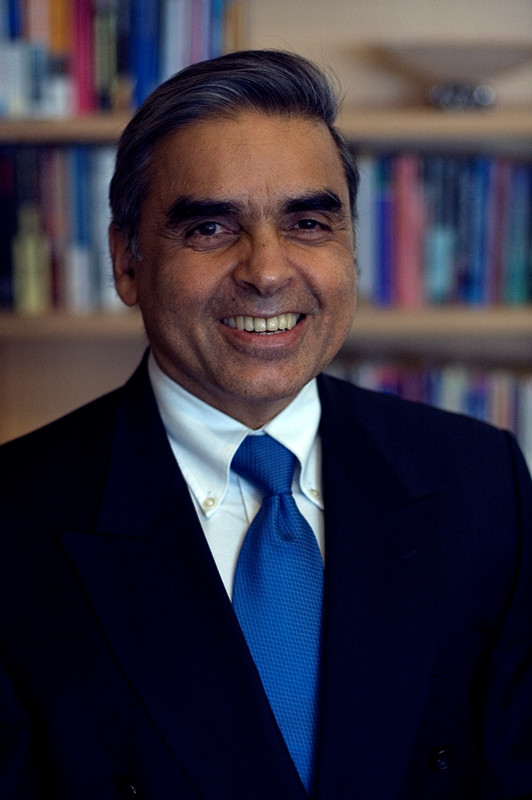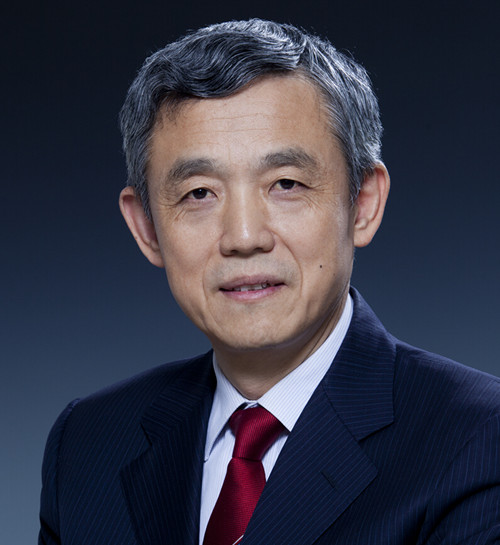Professor Yann ALGAN
Dean, School of Public Affairs, Sciences Po

Professor Kishore MAHBUBANI
Dean, Lee Kuan Yew School of Public Policy, National University of Singapore

Professor XUE Lan
Dean, School of Public Policy and Management, Tsinghua University
Date: Wednesday, November 2, 2016
Time: 19:00–20:00
Venue: Auditorium, School of Public Policy and Management, Tsinghua University
Dialogue Synopsis:
The rise of global governance is a political integration which aims at addressing transnational problems that affect more than one state or region, such as climate change. The anti-globalization movement is a reaction to outcomes like inequality and immigration in the process of economic integration, exacerbating the complexity of global governance. How can anti-globalization movement be contained and managed through policies that better provide fair trade and sustainable development? Can this movement play their role in a new global governance? In any case, discussing global governance under the anti-globalization movement has never been as imperative as it is today.
Speaker Biographies:
Yann Algan is the Dean of the School of Public Affairs and Professor of Economics at Sciences Po.
His research focuses on Digital Economy and Public Action 3.0. He also specializes on social capital and well-being in relation to individual outcomes and economic behavior, with particular attention to the role of education, culture, and institutions. His work incorporates methods from psychology, sociology, and economics, including randomized evaluations of public policies. He is a member of the OECD High Level Expert Group on Well-Being, and is affiliated with CEPR and IZA. His awards include the Best French Young Economist (2009), and his books on trust and French society have been awarded Best French Economics Book and French Essay (2009) and Best French Economics Book, Prix Lycéen (2013). In 2010 he was awarded an ERC Starting Grant for his project “Trust”. In 2015, he received a second ERC grant, a consolidator one, for the project “Sowell” on Social Preferences, Well-Being, and Policy.
Kishore Mahbubani has had the good fortune of enjoying a career in government and, at the same time, in writing extensively on public issues. He was with the Singapore Foreign Service for 33 years (1971-2004). He served as Singapore’s Ambassador to the UN and as President of the UN Security Council in January 2001 and May 2002. He was Permanent Secretary at the Foreign Ministry from 1993 to 1998. Currently, he is Dean of the Lee Kuan Yew School of Public Policy, National University of Singapore.
He is the author of Can Asians Think?, Beyond The Age Of Innocence, The New Asian Hemisphere, The Great Convergence (selected by Financial Times as one of the best books of 2013), and Can Singapore Survive?
He was conferred the Public Administration Medal (Gold) by the Singapore Government in 1998 and the Foreign Policy Association Medal in 2004. He was listed as one of the top 100 public intellectuals in the world by Foreign Policy and Prospect in 2005, included in the 2009 Financial Times list of Top 50 individuals, and selected as one of Foreign Policy’s Top Global Thinkers in 2010 and 2011. Most recently, he was selected by Prospect magazine as one of the top 50 world thinkers for 2014.
He also serves as a Non-Resident Senior Fellow of Brookings Institution. His public service appointments include a member of the Expert Committee on Emergency Management of the State Council of China, Vice President of China Association of Public Administration, a member of the Visiting Committee at Harvard Kennedy School, a member of Academic Advisory Board for the Blavatnik School of Government at Oxford University, a member of OECD Science, Technology and Innovation (STI) Advisory Group, and a Co-Chair of the Leadership Council of Sustainable Development Solution Network (SDSN). He is a recipient of the Fudan Distinguished Contribution Award for Management Science.